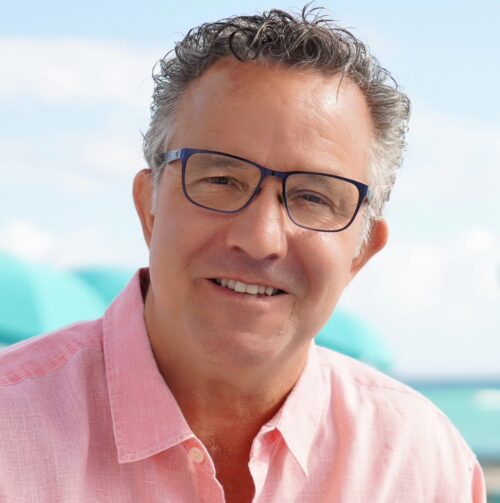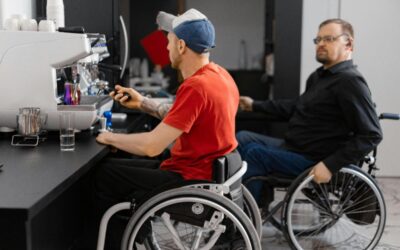Years go, I was fortunate to take part in the Wheels of Hope Wheelchair Basketball and Land Mine Awareness Tour in Bosnia and Croatia. I led a team of seven gold medal Paralympians, including David Kiley, one of the best-known wheelchair athletes in the world.
Captioned video:
Video transcript:
DAVID KILEY: My name is David Kiley. I’m here in Charlotte, North Carolina. I moved out from the West Coast to what I refer to as the best coast and I am blessed to be in a position to build a program pretty much from the ground floor up, one that can leave a legacy here in the southeast related to programs for physically challenged kids and adults.
When we have athletes who go beyond the norm and achieve the most, they move into an international mode. I had a tremendous opportunity, one that you seldom get in a lifetime to where something can impact you as deeply as what took place in Bosnia on the Wheels of Hope Tour.
I won ten gold medals in my twenty-five years in Paralympic competition and I’ve got to say that none of them are as important as what I felt we accomplished and gave back to people who needed a lift and needed support and needed our instruction.
Man, the basketball was just absolutely wild. You know, it’s a very basketball proud country to begin with but it seemed like from each location that we played in front of sellout crowds – or I don’t know if they sold tickets or not – but they were packed.
The second game we played was probably ranked number one in my competitive history of wheelchair basketball. We played in a very small, historical site of basketball is Bosnia. It comfortably could hold a hundred and I think there must have been at least a thousand people in there. Kids hanging from the rafters and the walls. You know, they weren’t just around the court. They were hanging up on the walls and you felt so close to everyone. The ball wasn’t out of bounds unless it hit a person outlining the court. And if you made a layup and going in for a transition fast break, you went three or four people deep into the crowd and they just kind of gave you a shove back out into the court.
The electricity and the emotion of that game, you know, they got off to a big lead and they were, you know, we just thought, gosh, man. This is intense, you know? It is the moments that you live for if you’re a competitor, you know, where you don’t know if you’re going to win and the crowd is going crazy and to this day, I don’t remember being that excited about a ball game in that way.
One of our greatest contributions that gave me goosebumps at each game was the fact that once we introduced the Bosnians and Croatians and Serbs to our high tech equipment that we use for sports and for everyday life, we were able to not just leave it at that. We gave a brand-new state of the art wheelchair to each disabled sport club or organization in that city that we visited.
Just as no one asks for a disability, no one asks for a war to come to their front doorstep either and I think that Bosnia was – in Bosnia that the disabled veterans there have now the opportunity to use a sport like wheelchair basketball to help them overcome their circumstance and to give them a lot more hope.
I am very busy at work and through my job and through my athletic pursuits and I travel extensively, so when I have the opportunity to be home on a weekend, especially a long weekend or just to get home after a hard day’s work, I gain incredible peace just by coming to my home and spending good time with my family.
To weather time, to become a legend, to be a champion, to be a gold medal winner, my – the one word that comes to my mind is sacrifice. You’ve got to be willing to sacrifice who you are today for who you can become tomorrow.
What I’ve learned through all of my rehabilitation experience is that disability has no conscience. It virtually doesn’t care whether you’re a doctor or a lawyer or whether you are destined for the pros or whether you’re a teenager or a senior citizen. It has no boundaries. You just have to go through a rebirthing process. You know, your whole way of thinking changes and you know, who you surround yourself with will often determine how far you can go.





0 Comments